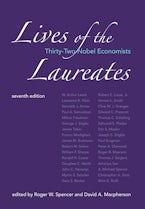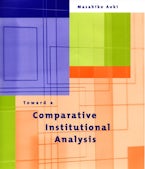As someone who has written extensively on global aging and its profound implications, I was delighted to read The Coming Generational Storm. It is an extremely important and original contribution.
Peter G. Peterson, Chairman, The Blackstone Group, and author of Gray Dawn: How the Coming Age Wave Will Transform America—And The World
Among academic experts, Larry Kotlikoff has earned the title 'Mr. Generational Accounting.' His unfuzzy arithmetic decisively rebuts the Bush tax cuts, which are based on the delusion that 5 - 4 = 6, not 1. Read and judge for yourself the specter of our future: too many retirees dependent on too few working-age people. Fiscal imprudence now mandates broken promises later.
Paul A. Samuelson, MIT, Nobel Laureate in Economic Sciences (1970)
There's a lot of frivolous criticism of our politicians, but this book hits the mark, convincingly documenting their biggest sin: the failure to account for the magnitude of a huge government deficit crisis. The accounting scandals of Enron, WorldCom, and Parmalat pale by comparison. Read this book so you can start preparing for much higher taxes in the future for you and your children.
Robert J. Shiller, Yale University, author of Irrational Exuberance and The New Financial Order
Between a rock and a hard place. We must all too soon realize that we want to spend more on transfers (Social Security, Medicare, Medicaid) than we are willing to pay in taxes. And the prospective $44 trillion shortfall is, almost literally, beyond ordinary comprehension. Documented diagnosis, along with suggested reforms, are first steps toward constructive dialogue.
James M. Buchanan, Distinguished Professor Emeritus, George Mason University and Virginia Polytechnic Institute, Nobel Laureate in Economic Sciences (1986)
No economist has thought more clearly or spoken more resolutely about our long-term fiscal challenges than Larry Kotlikoff. In plain talk backed by economic rigor and the powerful models that he and his colleagues have pioneered, Kotlikoff and coauthor Scott Burns expose the shoddy thinking and false premises that lie at the heart of U.S. fiscal policy and that risk the economic well-being of future generations. They show how reckless George W. Bush has been with our economic future, but also show that the evasions from fiscal honesty extend well beyond the irresponsibility of this administration. And they offer solutions that are clear, bold, and controversial. You may not accept them in full, but you will understand better than ever before the real choices that we face. This book is a must-read for a country adrift in fiscal shortsightedness and political spin.
Jeffrey D. Sachs, Director of the Earth Institute, Columbia University
Kotlikoff has been one of the pioneers of the new economics of generational accounting. If anyone foresaw the deterioration of the U.S. government's fiscal health, he did. Now, with journalist Scott Burns, he has written a book that spells out, in crystal-clear layman's terms, the disturbing truth about the rising tide of red ink.
Niall Ferguson, Stern School of Business, New York University, and author of Empire and The Cash Nexus
If Stephen King wrote about economics it would look like this. Kotlikoff and Burns have gazed into our future and seen a nightmare. The authors describe that nighmare vividly and identify why our elected officials on both sides of the political aisle are too cowardly to save us. Every U.S. citizen should read and digest this book before it is too late.
Kevin A. Hassett, Director of Economic Policy Studies, American Enterprise Institute, and coauthor of Dow 36,000
...filled with advice on protecting what you've got and making it grow before and during retirement.
Chris Tucker
Dallas Morning News
The Coming Generational Storm...lays out in easy-to-understand prose why Social Security and Medicare need a comprehensive overhaul.
Gregory D. Hess
Los Angeles Times
...Kotlikoff and Burns proffer plenty of evidence to back up their claims.
Anne Wagner
National Journal
The policy solutions of Kotlikoff and Burns are specific and ingenious....
Michael Mandel
Business Week
...[A] serious attempt to look at a problem that most people are trying to ignore.
Alan Beattie
The Financial Times
...excellent and scary...
Nicholas Kristof
The New York Times
Having painted a fiscal picture as awful as 'Guernica,' the authors unveil two bold plans...[An] engaging book.
Todd G. Buchholz
The Wall Street Journal
The Coming Generational Storm lays out the problems in understandable language and compelling detail.
The Washington Post
This is a book any serious investor should absorb and act upon.
Jonathan Chevreau
National Post
This is a sobering look at an impending crisis with implications for all of us. Recommended for all collections.
Library Journal
This may be the year's most important book. Essential.
CHOICE
The Coming Generational Storm is one of the most important (and refreshingly irreverent) policy analyses of recent years. Laurence Kotlikoff and Scott Burns ask what will happen to our economy and way of life when the baby boomers meet the current Medicare and Social Security systems. Their answers, using the innovative techniques of 'generational accounting' developed by Kotlikoff and others, demonstrate how close we are to a genuine fiscal precipice and the hard landing that awaits us. For our current presidential aspirants, the authors also provide some provocative ideas for how to ameliorate the damage this storm will certainly leave in its wake.
Robert J. Shapiro, Managing Director and Founding Partner, Sonecon, LLC, Senior Fellow of the Brookings Institution and the Progressive Policy Institute, and former Under Secretary of Commerce for Economic Affairs
I lie awake nights worrying about the fiscal crisis described in The Coming Generational Storm. This is by far the single most important problem in US economic policy. Every American should read this fabulous book.
George Akerlof, Koshland Professor of Economics, University of California, Berkeley, Nobel Laureate in Economic Sciences (2001)
The Coming Generational Storm is a well written summary of an impressive and important body of carefully documented research. The book demonstrates clearly the folly of existing tax and transfer policies in the face of the impending retirement of the baby boom generation. Anyone interested in the future economic viability of American society and the economic problems we are bequeathing to our children should read this study.
James J. Heckman, Henry Schultz Distinguished Service Professor of Economics, The University of Chicago, Nobel Laureate in Economic Sciences (2000)
The Coming Generational Storm documents in frightening detail America's reckless fiscal trajectory as it barrels toward bankruptcy. The need to revamp Medicare and Social Security is urgent. This book is a must-read for anyone who cares about our nation's future.
Janet Yellen, Haas School of Business, University of California, Berkeley, Member, Federal Reserve Board (1994-1997), and Chair, Council of Economic Advisers (1997-1999)
Kotlikoff and Burns document and analyze the most serious issue facing the American government today: the looming intergenerational conflict created by its gross failure to develop a consistent plan to fund and manage entitlements for the elderly, the cost of which will explode when the baby boom generation retires. This book is essential reading for those concerned about their own future and their childrens'.
Daniel McFadden, Cox Professor of Economics, University of California, Berkeley, Nobel Laureate in Economic Sciences (2000)
Brilliant insights on the me generation vs. the next generation. Better still, smart advice on equally vexing questions like whether to invest in a 401(k) or a second mortgage.
Sylvia Nasar, John S. and James L. Knight Professor of Business Journalism, Columbia University, author of A Beautiful Mind
The clarity of the analysis, the range, timeliness, and importance of the issues covered, and the authors' lively, provocative writing style make this book ideal for use in both introductory and higher-level classes.
Robert Whaples, Department of Economics, Wake Forest University

A Forbes.com Top Ten Business Book for 2004











